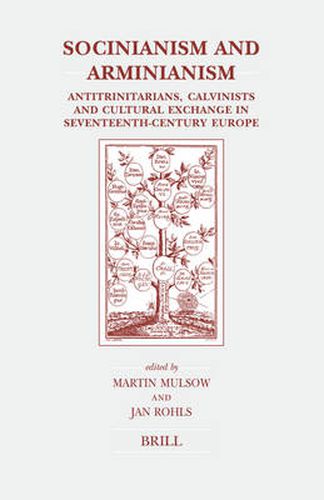Readings Newsletter
Become a Readings Member to make your shopping experience even easier.
Sign in or sign up for free!
You’re not far away from qualifying for FREE standard shipping within Australia
You’ve qualified for FREE standard shipping within Australia
The cart is loading…






Socinianism has often been studied in national contexts and apart from other currents like Arminianism. This volume is especially interested in the in-betweens : the relationship of Anti-trinitarianism to liberal currents in reformed Protestantism, namely Dutch Remonstrants, English Latitudinarians and some French Huguenots. This in-between also has a local aspect: the volume studies the transformations that Anti-trinitarianism experienced in the complicated transition from its origins in Italy and its refuge in Poland, Moravia and Transsylvania to Prussia, to the Netherlands and later to England. What effects did this transfer have on the dynamics of pluralization in the progressive Netherlands? How did the Socinians overcome social adaptation from a group of exiles to a diffuse movement of modernization? How did they manage to connect within the new milieu of Arminians, Cartesians, Spinozists and Lockeans?
Contributors include: Hans W. Blom, Roberto Bordoli, Douglas Hedley, Sarah Hutton, Didier Kahn, Dietrich Klein, Florian Muhlegger, Martin Mulsow, Jan Rohls, Luisa Simonutti, and Stephen David Snobelen.
$9.00 standard shipping within Australia
FREE standard shipping within Australia for orders over $100.00
Express & International shipping calculated at checkout
Socinianism has often been studied in national contexts and apart from other currents like Arminianism. This volume is especially interested in the in-betweens : the relationship of Anti-trinitarianism to liberal currents in reformed Protestantism, namely Dutch Remonstrants, English Latitudinarians and some French Huguenots. This in-between also has a local aspect: the volume studies the transformations that Anti-trinitarianism experienced in the complicated transition from its origins in Italy and its refuge in Poland, Moravia and Transsylvania to Prussia, to the Netherlands and later to England. What effects did this transfer have on the dynamics of pluralization in the progressive Netherlands? How did the Socinians overcome social adaptation from a group of exiles to a diffuse movement of modernization? How did they manage to connect within the new milieu of Arminians, Cartesians, Spinozists and Lockeans?
Contributors include: Hans W. Blom, Roberto Bordoli, Douglas Hedley, Sarah Hutton, Didier Kahn, Dietrich Klein, Florian Muhlegger, Martin Mulsow, Jan Rohls, Luisa Simonutti, and Stephen David Snobelen.